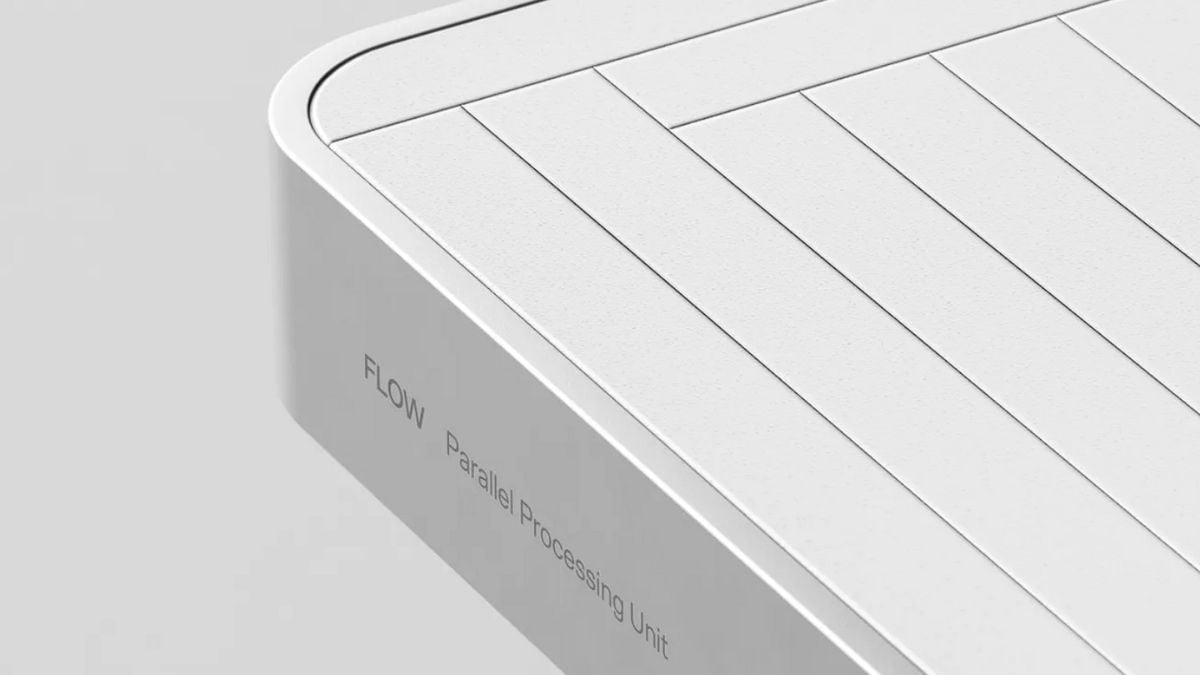A groundbreaking announcement has come from a Finnish startup called Flow Computing. They have made a bold claim that could revolutionize the computing world.
Flow Computing asserts that their new design for a parallel processing unit (PPU) can boost any CPU’s speed by up to 100 times.
This claim, if true, could drastically change how we think about computer performance.
Flow Computing recently emerged from stealth mode, backed by a significant infusion of venture capital.
The startup’s ambitious claims have already started to create a buzz in the tech community. According to Flow Computing, integrating their PPU with current CPU architectures will make a huge difference.
They believe that even without special optimizations, existing computer code could run twice as fast with their technology.
Flow Computing: Promise of Parallel Processing
At the heart of Flow Computing’s innovation is the concept of parallel processing.
Traditionally, CPUs process tasks one after the other in a sequence. In contrast, parallel processing allows multiple tasks to be processed simultaneously.
This approach can significantly enhance computing efficiency and speed.
Flow Computing’s PPU aims to offload some of the work from the CPU, allowing it to handle more tasks at once.
This is similar to how graphics processing units (GPUs) work, handling multiple operations in parallel to render images quickly.
Flow Computing’s goal is to make CPUs behave more like GPUs, which could lead to a massive increase in performance.
A Spin-off with a Strong Background
Flow Computing is not just any startup. It is a spin-off from VTT Technical Research Centre of Finland, the largest research and technology organization in the country.
This connection lends credibility to Flow’s claims. VTT has a strong reputation in the field of technology and innovation.
The company’s Chief Technology Officer, Martti Forsell, is a notable figure in the tech world.

He has published numerous papers on the Thick Control Flow (TCF) Processor paradigm. This paradigm appears to be a key component of Flow Computing’s technology. Forsell’s expertise and background add weight to Flow’s ambitious claims.
The Catch: It’s Still in Development
However, there’s a significant catch to Flow’s announcement: the PPU doesn’t exist yet. While the concept is promising, the actual hardware has not been produced.
This means that, for now, we have to rely on Flow’s word and the initial data they have shared.
Flow Computing has some laboratory tests to back up their claims. These tests used an FPGA testing board to simulate the performance of their PPUs.
According to the data, the simulated chips showed performance improvements of more than 100 times. While this is impressive, it is important to remember that these results are from controlled lab conditions, not real-world applications.
Protecting Intellectual Property
Flow Computing has kept details about their technology somewhat vague. This is likely an effort to protect their intellectual property.
While this makes their claims harder to evaluate, it is a common practice for startups in the tech industry. Protecting their innovations is crucial for securing future patents and competitive advantages.
The company has plans to integrate their PPU with various CPU architectures, including X86, Arm, and RISC-V.
This wide compatibility could make their technology accessible to a broad range of devices. Flow Computing envisions PPUs being used in servers, workstations, laptops, smartphones, and even smartwatches.
A Scalable Solution
One of the most intriguing aspects of Flow Computing’s PPU is its scalability. The company plans to offer PPUs with different core counts, ranging from four to 256 cores.
This means that their technology can be customized and scaled according to the needs of different applications.
For instance, a smartphone might use a smaller PPU with four cores, while a server could use a much larger PPU with 256 cores.
This flexibility makes Flow Computing’s technology adaptable to a wide variety of use cases. It also allows manufacturers to choose the level of performance boost that best suits their products.
The Licensing Model
Flow Computing does not plan to manufacture these chips themselves. Instead, they intend to license their designs to major chipmakers like Qualcomm and Intel.
This approach is similar to the business model used by ARM, which licenses its CPU designs to various manufacturers.
By licensing their technology, Flow Computing can focus on innovation and development, leaving the manufacturing to companies with established production capabilities.
This could help speed up the adoption of their PPUs and bring the benefits of their technology to market more quickly.
Skepticism and Potential
Despite the excitement, there is understandable skepticism around Flow Computing’s claims. Extraordinary claims require extraordinary evidence, and so far, the only evidence comes from the company’s own tests.
It remains to be seen whether these performance improvements can be replicated in real-world scenarios.
However, Flow Computing’s pedigree and the involvement of VTT Technical Research Centre lend credibility to their claims.
If their technology delivers on its promises, it could attract significant interest from major players in the tech industry. If companies like Intel, AMD, and Qualcomm start showing interest in licensing Flow’s PPU designs, it will be a strong indication that the technology is viable.
The Road Ahead
For now, the tech world will be watching Flow Computing closely. The company has set high expectations, and the next steps will be critical.
They will need to move from lab tests to real-world applications, demonstrating that their PPUs can deliver consistent and reliable performance improvements.
If successful, Flow Computing’s technology could lead to a new era of computing power.
Devices from smartphones to supercomputers could see significant boosts in performance, enabling new applications and capabilities.
This could have far-reaching implications for industries ranging from gaming to scientific research.
Flow Computing’s claim of making CPUs 100 times faster is a bold one. The company has a strong background and promising initial data, but the real test will be in practical implementation.
As they continue to develop their PPU technology, the tech world will be watching with anticipation. If Flow Computing can deliver on their promises, they could change the nature of computing as we know it.


Is NN777 Slot Jili worth playing? Definitely! But make sure you’re on the right site. nn777slotjili directs you there, no scams. Give it a shot!
Need a reliable agent for 747 in the Philippines? I’ve had good experiences with agent747ph. Worth checking if you’re looking around.
Finding a good 747 agent can be tough. I used 747agents and had no bad surprises. They seem pretty legit with decent service.
Việc nâng cấp và bảo trì hệ thống định kỳ tại xn88 com luôn được thông báo trước, đảm bảo không gây gián đoạn đến những kế hoạch giải trí của khách hàng. (Tương tự cho đến đoạn 80, tập trung vào: Công nghệ AI, bảo mật 2FA, tính hiện đại) TONY01-12